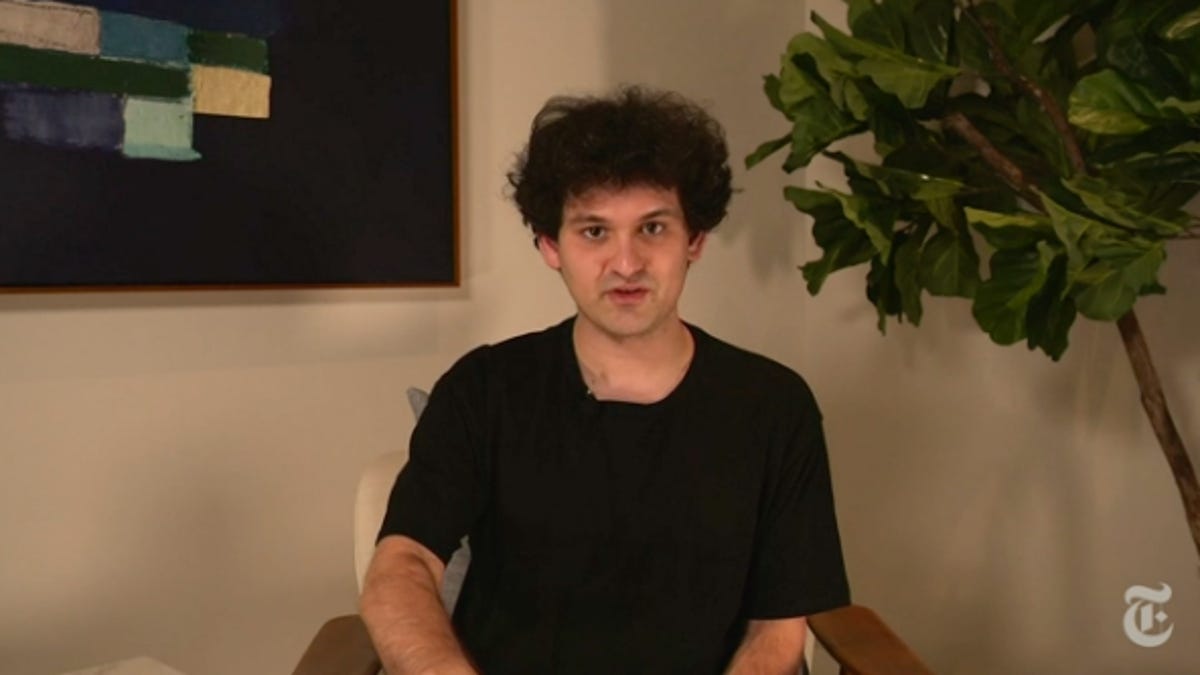SBF Says He's Worth 'Close to Nothing' After FTX Crash
Sam Bankman-Fried, the founder of FTX, was worth approximately $16 billion at the start of November.

Sam Bankman-Fried spoke publicly on Wednesday from the Bahamas.
As October turned to November, Sam Bankman-Fried had an estimated net worth of $16 billion. Better known as SBF, the founder of the FTX crypto exchange was predicted by some to become the world's first trillionaire.
But he's now worth "close to nothing," he said in a live interview Wednesday with journalist Andrew Ross Sorkin at The News York Times' DealBook Summit.
SBF video-called in from the Bahamas, where he operated his FTX empire. When asked by Sorkin how much money Bankman-Fried now had at his disposal, the founder answered, "by my knowledge, close to nothing."
"I don't have any hidden funds here -- everything I have, I'm disclosing. I think I have one working credit card left, it might be $100,000 or something like that in that bank account. Everything I had, even all the loans I had, those were things I was reinvesting. I put everything I had in FTX."
Until November, FTX was among the world's biggest cryptocurrency exchanges. Its implosion began on Nov. 2, when the company's finances were leaked to CoinDesk. The publication found that over one-third of the $14.6 billion in assets owned by Alameda Research, Bankman-Fried's investment firm, were FTT tokens, a cryptocurrency issued by FTX. In short, the foundation of Alameda's finances was an asset issued by its sister company.
Binance founder Changpeng Zhao, aka CZ, tweeted on Nov. 6 that his exchange, the biggest in the world, would be selling its substantial FTT reserves. That was the beginning of a chaotic series of events that saw CZ announce an intention to buy FTX, followed by him rescinding the offer after reviewing FTX's finances.
The closure of Alameda Research came next, then FTX and FTX.US filed for bankruptcy. Alameda Research was discovered to be $8 billion in debt, with FTX transferring customer funds to Alameda to plug the hole, leading to the exchange's inability to service customer withdrawals.
Read more: The Fall of FTX and Sam Bankman-Fried: A Timeline
SBF on Wednesday contended that FTX.US and FTX Japan, two companies that operate in different regulatory frameworks than other FTX subsidiaries, would be liquid enough to service customer withdrawals if those in charge permitted it. Over and over again, however, Bankman-Fried acknowledged enormous mistakes and that, as founder, the responsibility was with him.
In one stunning moment, Sorkin noted that reports about FTX and Alameda's workplace culture sounded like "a bunch of kids who were on Adderall having a sleepover party." Bankman-Fried could offer no meaningful defense.
"Look, I screwed up. I was the CEO of FTX, that means I was responsible," he said. "We messed up big."
Bankman-Fried said he's currently staying in the Bahamas but said that "to my knowledge" he could come to the US. He noted he "wouldn't be surprised if sometime I am up there talking about what happened to our representatives." Both the US House Financial Services and the Senate Banking committees will hold hearings into the implosion of FTX in December, and SBF has already been told to appear at a Texas securities regulatory hearing in February.
Bankman-Fried said he hopes that FTX's finances could be salvaged and customers repaid.
"I would have thought that there'd be a chance for a pathway forward here rather than what would happen if you just sold everything off for scraps," he said. "I don't have confidence, I can't promise anyone anything there, it's not in my hands… I would think it would make sense to explore that… there's a chance that customers could be made a lot more whole, maybe fully whole, if there was a concerted effort."

